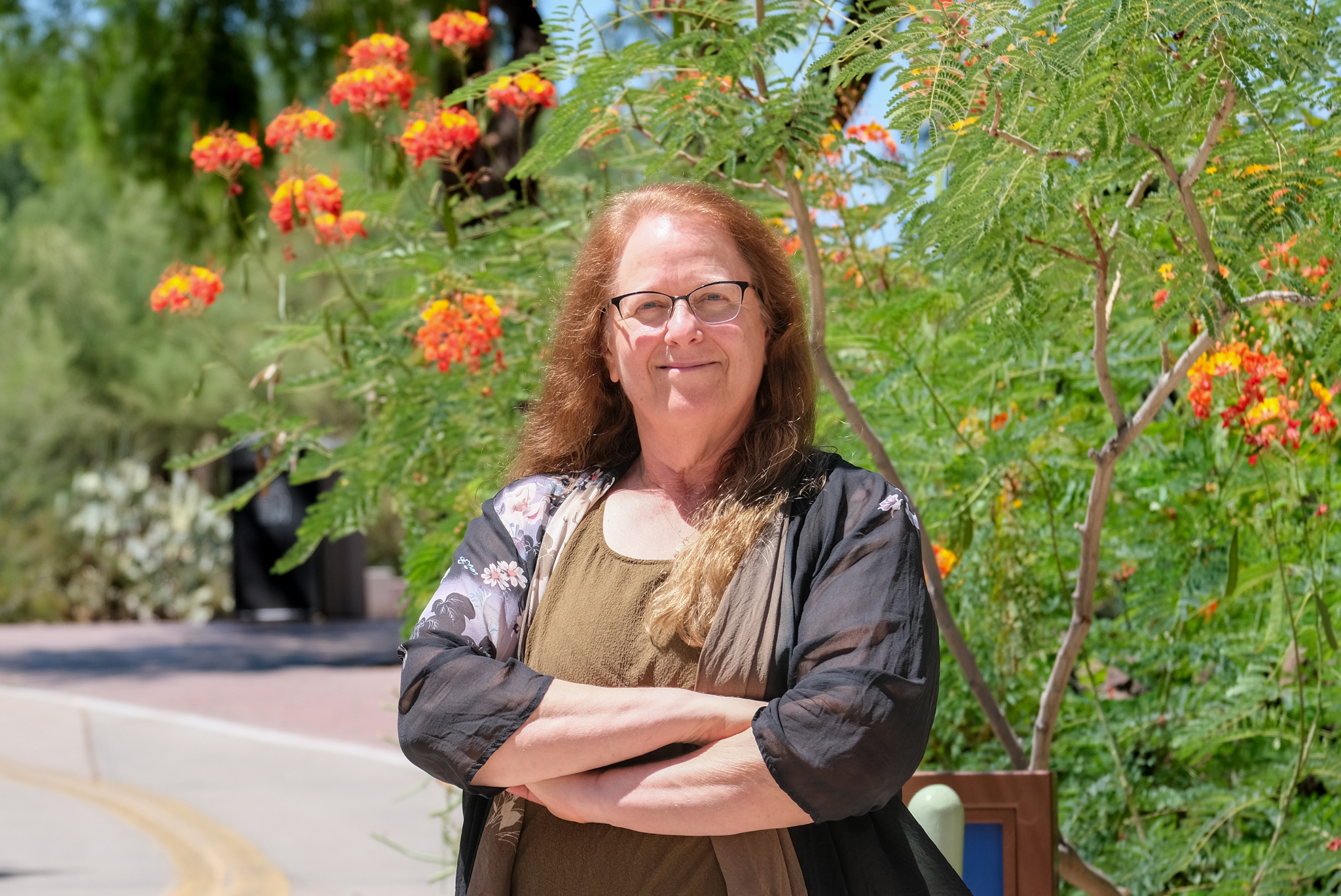From First Female Faculty to First 'Woman of Impact'
Environmental Science faculty Raina Maier recognized in inaugural class of 30 'Women of Impact'
Raina Maier

When Raina Maier was only four years old, she knew she had a passion for environmental science. Now, she is a recipient of the Women of Impact award, presented by the University of Arizona’s Department of Research, Innovation, and Impact.
Maier’s childhood was full of family trips from New Jersey to New York. It only took a few drives past “stinky” petroleum processing plants to realize what she wanted to do with her life.
“When I was a little girl we lived in New Jersey and my family had a little farm in Upstate New York,” Maier said. “We would travel along the New Jersey Turnpike and drive past the petroleum processing plants, and I remember trying not to breath because of the bad smell. I remember thinking, 'Why would we do this to our air?' Since then, I have had a passion for solving environmental problems.”
Maier followed that passion to the University of Minnesota for her bachelor’s degree, and then to Rutgers University for her Ph.D. in microbiology. She already had passion, but gained her confidence during her postdoc research position, which was in protein biochemistry.
“What I learned from my postdoc was that I was capable of learning and doing anything, “Maier said. “I don't think everybody realizes what they are capable of doing — you can do your graduate work in one area and then go to this whole different area where you have to relearn everything. Basically I was going from bacteria to human systems, and it was challenging and it was fun.”
By 1991, she earned a full-time job at the University of Arizona in what is now the Environmental Science department. Maier was only the second woman hired in the department, and after the first woman left, Maier was the sole female faculty.
“We had a new department head and it was his vision to change the course of this department from its sole focus on agriculture and soil production to encompass environmental issues,” Maier said. “The fact that I was a woman and we were changing focus in the department, not everybody was quite happy about that. So it was a struggle and it was a little bit lonely sometimes because I felt as the only woman here, I had to be very strong and never show any weakness.”
Now, over 30 years later, Maier established herself as a prominent figure in environmental research both at the University of Arizona and beyond. Her research mainly falls into two fields: microbial surfactants and soil microbiomes.
Surfactants are molecular compounds that are typically used to break surface tension between water and air, which are used in many ways, such as cleaning detergents. However, Maier’s research led her and a colleague to discover how to make microbial surfactants synthetically and use them in environmental remediation and removing valuable and contaminate metals from water sources.
“In 1994 we discovered that certain microbial surfactants bind strongly to metals. Since then we have discovered the surfactants prefer to bind to metals like uranium, lead and rare earth elements, leaving behind common metals like calcium and potassium,” Maier said. “Now that we can make them synthetically, we can actually tune their structures to be even more selective for certain metals.”
Maier’s other research focus is on soil microbiomes in arid environments, especially in mine tailings, which are the leftover waste materials from mined areas. After joining the University of Arizona, Maier noticed the extreme difference in soil quality in Arizona compared to where she grew up in the Midwest and east coast of the United States, which led her to a new research interest.
To increase the amount of research related to mine tailings and soil health, Maier co-founded the Center for Environmentally Sustainable Mining (CESM) at the University of Arizona.
“These mine tailings piles can cover one to two thousand acres and there is nothing left in these crushed and extracted materials, no organic matter, no nutrients, there is not even any plant-related microbes left,” Maier said. “So we are asking, ‘What is the minimum input to the system that you need to make those mine tailings into something that can sustain plant growth again?’”
Maier is also the director of the University of Arizona Superfund Research Center, a multimillion-dollar research program that is funded by the National Institutes of Health. She began overseeing the center in 2012, and focuses the grant on the health impacts of mining on surrounding communities and the mitigation of the environmental impacts of mines.
Even with all of Maier’s accomplishments in research in the Environmental Science department, she said one of the best things she experienced over the years is the diversification of the department and University.
“I think it’s so important in any organization to have diverse views”, Maier said. “To start as the only woman in the department and to watch the department’s growth and diversification over the years has been a real reward of the struggle I faced and has made that struggle worthwhile.”
As part of the inaugural class of the Women of Impact, Maier said that the road to success for future awardees will not be easy.
“Don’t expect it to go smoothly, but keep at it and it will pay off,” Maier said.
Maier and the other 29 recipients of the Women of Impact award, including Environmental Science's Karletta Chief, will be honored at the August 24 celebration.

